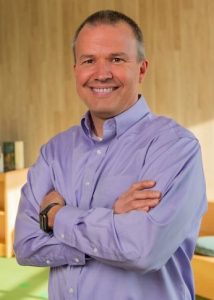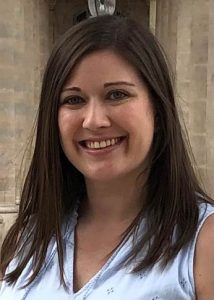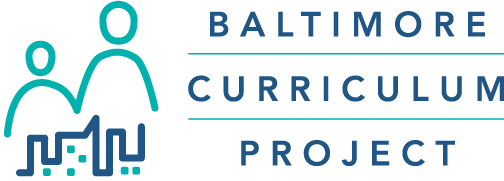April is Mental Health Awareness Month and the perfect time for us to examine the important role schools and educators play in our students’ mental health.
At the Baltimore Curriculum Project, Maryland’s largest and oldest operator of neighborhood conversion charter schools, we provide mental health resources to our children and families to create the foundation for a mentally healthy life.

Mentally healthy children can reach critical developmental and emotional milestones and learn (and practice) the tools they need to be resilient. As it is with us as adults, the better our mental health, the better we are able to handle stress better and function well in all aspects of our lives.
1in 7 children ages 3 to 17 (13%) have a diagnosed mental, behavioral, or developmental disorder (Centers for Disease Control and Prevention). The more common childhood mental health issues are attention-deficit/hyperactivity disorder (ADHD), anxiety and behavioral disorders.
BCP’s Wolfe Street Academy in South Baltimore has created a comprehensive, immersive mental health approach between the school and one of our great community partners, Johns Hopkins Hospital. Leading this program are:

Mark Gaither
Principal for 18 years at Wolfe Street Academy (WSA), a Baltimore City neighborhood charter school run by the Baltimore Curriculum Project (BCP).

Jaclyn Hutchinson
WSA’s school-based therapist for the past 10 years and clinical supervisor at Johns Hopkins Bayview in Hopkins’ school-based mental health program.
We talked with Mark and Jaclyn about the program and strategies for parents and educators to help children have better mental health.
BCP: Tell us about the mental health services you provide at Wolfe Street Academy.
Jaclyn: I love being at Wolfe Street. I can walk outside of my office and go to the classroom and check in on how things are going. I can see with my own eyes through observations at recess, in the lunchroom, in the classroom, what’s going on with the child. I also work 12 months, so I do home visits on breaks and during the summer and can see what the parents are dealing with at home. This gives me a unique perspective on how I can help support the child and the family in the best way possible.
My role helps to break down some of the barriers with access to mental health treatment. I basically have a mental health outpatient clinic here in the school. More than half of my time is spent doing individual and family therapy with kids who have medical assistance. This helps to support those families that might not be able to access regular mental health clinics in the community, that might not have access to transportation to those clinics. I am fluent in Spanish, so being able to provide therapy in Spanish helps to eliminate that other barrier where having a therapist that can communicate with the family without an interpreter. That’s really important. [WSA has a large Latino population.] Additionally, kids aren’t having to miss a ton of school time by having to leave school to access mental health services. Some kids who seek services outside of the school have to leave during the day, miss school, and then come back. A lot of the families might not even have the knowledge of where or how to access services. Having the community school here at Wolfe Street and having such great relationships that we do with our families, we’re able to kind of connect them to these resources in a really easy way.
The other part of my job is doing preventative services. I can do small groups with students that aren’t on my caseload, which widens the footprint in the school. I do classroom presentations on social emotional learning activities with different classes. I consult with teachers to help them if they have any individual questions about specific students or about some interventions that they need help with. I do staff training, too. This year, we did one on trauma-informed teaching. We try to hit both of those sides, the preventative measures and the kind of response to mental health needs.
Mark: Jaclyn’s services are outside of our IEP [Individualized Educational Plan] and 504 process. At Wolfe Street, we have our school psychologist, a psychiatrist, and social worker. Where Jaclyn is able to really step in is to provide location-based mental health support for kids who don’t necessarily qualify for an IEP or have an IEP but still need those services. There are kids who have an issue that needs to be worked on, but it’s not having so much of an academic effect, so an IEP or 504 plan isn’t open to them. Jaclyn and her crew fill that gap.
BCP: Why are mental health services so critical for the community you are serving?
Mark: We have a community that is very vulnerable. They are vulnerable to mental and physical health issues due to poverty, language barriers, food scarcity, and housing insecurities, to name a few. These vulnerabilities create a feedback loop that, if someone like the school doesn’t step in with an extra commitment to help out, can spiral into increasingly dire outcomes. The mental health services we provide are that extra commitment. Our IEP process takes care of those kids for whom their mental health is impacting academics and our partnership with Hopkins reaches other students, maybe even before they have academic issues. I think we have helped a lot of kids and their families develop skills that they are able to use to disrupt the feedback loop and find success.
BCP: Do you offer any services to parents?
Jaclyn: Pre-COVID, we did a little bit more, but, yes, we do parenting groups and family outreach activities. We did one this year on social media and internet safety.
BCP: How critical are mental health services to students today? Why is mental health such a hot button topic post-pandemic?
Jaclyn: The CDC states that one in six children under the age of eight suffer from a mental health or behavioral health disability or disorder. That’s pretty widespread. After COVID, we’ve seen a lot more kids reporting more anxiety, lower mood, having difficulty focusing in the classroom. It’s important to be able to have these services readily available for these kids in school, so that we can help make sure that they are getting their needs met so they can be successful.
Mark: You can’t do public or private education without having resources, structures and supports in mental health. Children are not blank slates that all we have to do is write the information down and then they know it. A lot of people compare education to a business, but our students are neither clients nor workers that we are either serving or directing. They’re individuals who walk around with their hearts on their shirt sleeves and are affected by everything around them, including what recess was like today. We have largely ignored that for most of the American educational system’s history. It’s one of the reasons why the U.S. educational status is middle-of-the-pack at best in comparison to the world. If we want to change that, it’s things like mental health that we need to recognize that have an impact on whether a child can learn or not. We only ignore it to our own detriment. Having somebody like Jaclyn taking the time to schedule proactive social emotional learning is what will create strong mental health. So when the inevitable slings and arrows of life come at our kids, they can deal with them.
BCP: What do parents and educators need to know right now about helping to ensure that children have good mental health?
Jaclyn: Educating school staff is really important to give context about what to look out for in the classroom and that disorders like ADHD, anxiety and depression are super prevalent in our kids. What you would typically think is depression or anxiety in an adult presents so differently in children. For children, anxiety can be a lot of fidgetiness and restlessness. I have a student who has a really hard time paying attention and is constantly out of her seat. Her teacher said that she thinks the student might have ADHD, but knowing what I know about what is going on in the family, there’s a lot of anxiety there. It’s also important to help parents to be able to recognize that in their own kids and give them the resources that they can use if they need to reach out to them for help. Being able to be in the schools and have this relationship with this community is so important. I know in other schools, we’re not getting the same turnout and the same referrals that I’m getting here at Wolfe. I constantly have a wait list. I always have a full caseload. The majority of my referrals come from the parents and from the school secretary. She’s really great at connecting parents with me.
Mark: A huge part of it is providing the people who work with kids, whether they be parents or teachers, the tools to be able to assess and assist kids. Like Jaclyn mentioned, she can provide these folks with an understanding of why a child might be behaving a certain way, can help them understand that every behavior, negative and positive, is the result of trying to get something that is needed.
For example, negative behavior might be the desire to get attention or relieve anxiety. Knowing this lets us approach the situation and the child more productively. This is a very different approach than looking at the behavior as the child just being defiant. Providing the adults with these tools and knowledge will allow kids to learn, relationships between kids and adults to be more fruitful, and for teachers to teach. Our mental health portfolio includes Jaclyn’s services, the IEP and 504 process, trained social workers and interns from the University of Maryland, and a Director of Wellness who proactively nurtures a positive environment throughout the school.
BCP: Are your wraparound mental health services helping your youngest students become advocates for their own health as well?
Mark: Absolutely! We use mindfulness practices and virtues language. If a child is acting out in class, not listening, looking, frustrated, whatever it may be, one of our first options starts in the classroom. Every classroom has a mindfulness corner where the teacher encourages that student to practice one of the mindfulness techniques that they’ve talked about. Right there we’re recognizing the value of the mental health of this child, not just the value of good behavior. If that doesn’t work, if they’re still feeling conflicted or dysregulated, the teacher can ask for a mindfulness assist in the classroom where somebody will come and take the student to our school mindfulness room. One of the first things they do when they go into the mindfulness room is identify their feelings using a chart with different facial expressions. Through the practice of this over and over again, through conversations about virtues where we talk about things like commitment or enthusiasm or happiness or love, we are giving children the language and a method by which to express themselves, so that, as the adults, we can respond in appropriate ways. This is all part of educating the whole child. Sometimes the teacher takes a break for the whole class to reset, take some deep breaths and refocus. It’s really important to teach kids coping strategies that they can use in those moments when they do start to feel themselves escalating.
BCP: What are some tips and tools for parents to help their child have this language at home?
Jaclyn: Something I’ve recommended to parents, kind of similar to the mindfulness corner in the classroom, is having parents build something like that at home. Items might include feelings faces charts, sensory toys like stress balls or fidgets, books, coloring materials, stuffed animals, and mindful breathing cards. I provide them with a printout of feeling faces that they can use at home to kind of work on building that emotion vocabulary with their kids. Having the parents practice the skills with the kids or have the kids teach them the skills is a great way to interact with their child and be able to do those things together. It’s so important just to spend quality time with their kids. Even spending five minutes together doing something that the child likes helps to build that relationship, so that when something is wrong, a child is going to feel more comfortable going to their parents and talking to them.
A lot of the parents that I work with get their own mental health treatment. They really see the benefit in starting their kids off in getting therapy young, because they want them to be able to have the tools that they need to be successful throughout life. When they get older, they might not need therapy as often because they have the tools that they need to be able to regulate themselves.
Mark: Our approach is also about the referrals and the connections Jaclyn and her colleagues can make for our families. Our team has these vast connections at Hopkins. The mental health tip I would want parents to know is that you’re not the first person to need that kind of support. This is a regular part of Wolfe Street’s life and the services that we give. If you have a need, ask. You are not alone in needing some guidance, some help, some support and some resources. We are better together in doing all of this.
Jaclyn: Wolfe Street really normalizes getting services. Having this kind of program available in the school helps to break down that stigma that going to therapy is this negative thing.
Mark: This is how business needs to be done every day. Everywhere. Sometimes in education, people have the mindset that we’ll do this program and we’ll fix it, and then it’ll be okay. This is lifelong work. Giving kids tools at such an early age and giving them the language and confidence to get help is huge.
